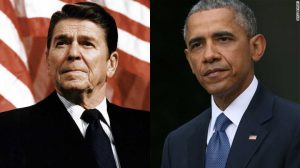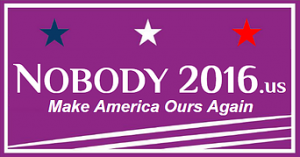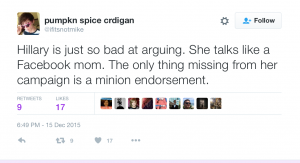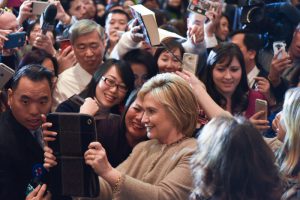Is Obama to Democrats the new Reagan to Republicans?
The rhetorical legacy that Obama will leave when his term ends this January is indisputable. He is an incredibly well-spoken, charismatic leader that has the ability to relate to everyday people from every generation, specifically millennials. The positive impact and impression that Obama has made amongst the younger generation is key for Clinton making that same connection. It’s no wonder Clinton’s campaign called him “her most popular, top-level surrogate” at a speech in Florida this Thursday, according to an article by the SunSentinel.
Obama is quoted saying “If we win Florida, we will win this election.” His use of “we” throughout his speech puts him side by side with Clinton. It shows the American public, specifically Floridians, his allegiance to the democratic party and to Hillary.
We have discussed in class a lot about the importance of surrogates. According to an article by The Atlantic, “Candidates depend on these individuals, called surrogates, to lend enthusiasm and credibility to a campaign.” Well, who is more credible to young voters than our last POTUS? A leader who has a 62% approval rating amongst those born after 1980, according to an article by Red Alert Politics. Obama is a quintessential authority figure for the younger generation, and his support for Clinton, may mean more support from millenials for Hillary as well.
Obama’s support for Clinton is not the only thing helping her, but so is his disdain for Trump. At a speech in Miami this past Thursday Obama said, “You can’t boo. He [Trump] can’t hear you boo, but he can hear you vote,” he said. “Donald Trump is uniquely unqualified to be president. No, I’m not joking. He is temperamentally unfit to be commander in chief.”
Surrogates have helped Clinton with the millennial vote throughout the entirety of her campaign. Amy Schumer, Jay Z, Ellen DeGeneres, Katy Perry, and Steven Spielberg are only a few examples of famous celebrities who are allegedly #withher, according to an article by Newsway. While I believe that these icons provide Clinton with popularity, I think that Obama gives Clinton the credibility she’s been lacking. Obama made our generation feel valued, important, and powerful; three things that the younger generation is so desperately wanting to feel from Clinton as well. However, with the overflowing support from Obama, I believe that Clinton is beginning to gain the trust from millenials that she needs to win the election.







